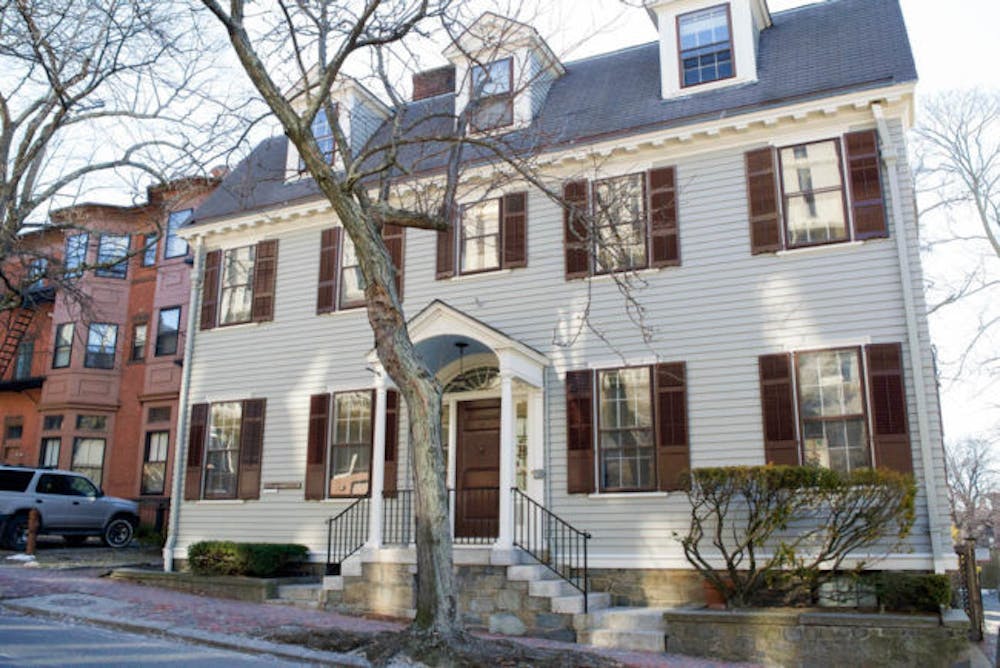About two years ago, the Swearer Center began to implement the provisions of its long-term strategic plan. As The Herald has previously reported, these reforms have been the source of significant tension between the center’s administrators and the student liaisons that run its programs. In their recent op-ed in The Herald on behalf of the Swearer Student Advisory Committee, Emerson Wells ’18 and Kai Salem ’18 defended these reforms by arguing that the previous model employed by Swearer represented “a continuation of Brown’s imperialist legacy in Providence,” and that the changes would return agency to those in the community with the expertise necessary to serve local populations effectively. Their arguments were convincing, but missed the point: The debate around the Swearer Center’s shifting policies has never been about the need for change, but rather how the changes have been implemented.
The Student Advisory Committee is right to argue that Swearer needed to address “irregular student training, constant turnover of student leaders, limited access for students with marginalized identities and a lack of accountability to the community.” These are all legitimate concerns. In fact, in a previous column criticizing the Swearer Center’s long-term strategic plan, I made nearly the exact same argument, noting that “volunteer turnover, elitism and program redundancy” were serious issues. As privileged students at an elite university engaging with community service, we must prioritize the needs of community populations above our own.
While it is certainly commendable to extol the values of ethical community engagement, community-centered service and inclusivity, the merit of these goals was never really in dispute. Instead, what Wells and Salem fail to acknowledge is a much more substantial problem with the Swearer Center’s strategic plan: the many failures in its ongoing implementation. The Swearer Center has treated successful and established programs under their supervision as necessary casualties in a crusade for “best practices.” Its inflexibility in accommodating programs with unique needs has actually, in some cases, resulted in less successful community engagement and reflected the classist assumptions that underpin several of these reforms.
Take, for example, the Outdoor Leadership Environmental Education Program, which is partnered with the Met High School in Providence. The Swearer Center’s pivot to give community partners more agency pushed the Met High School to work off-site with the Boys and Girls Club, rather than directly at the high school. This proposed change, no doubt prompted by a good-faith desire to optimize OLEEP’s engagement with a community group, nearly elicited the reverse effect. According to one community fellow for OLEEP, both parties were already “super content with the way things were” and the Met High School did not want to increase their responsibility. If anything, forcing “best practices” on an unwilling community group reeks of the very type of imperialist tendencies the Swearer Center claimed to be eliminating.
Similar, but more infamous, is the Swearer Center’s handling of the Brown Refugee Youth Tutoring and Enrichment program. The pedagogical foundation of BRYTE’s engagement model has always been based on one-on-one, in-home tutoring. Yet, as with OLEEP and the Met High School, the Swearer Center demanded that BRYTE implement several highly disruptive policy changes, including fewer student leaders and geographic centralization. The changes, however, threatened the very elements of the program that made it so successful with the served communities in the first place. Rather than accepting or recognizing that there existed a spectrum of dysfunction among Swearer programs and that certain ones required limited reforms or none at all, the Swearer Center did not budge and forced BRYTE to seek alternative sponsorship.
The question that Wells and Salem — and by extension, the Swearer Student Advisory Committee — failed to address in their piece is why the Swearer Center was so unwilling to embrace a case-by-case approach. Did they consult with the Met High School before proposing a partnership with the Boys and Girls Club, for example? No, their response was a case study of the very type of uninformed decision-making done without community input that the Swearer Center cited as a reason for the long-term strategic plan in the first place! No one, including me, can deny that Swearer Center programs have historically had challenges, many born out of our privilege and most easily correctable. But there is such a thing as nuance, thoughtful implementation and dialogue; the Swearer Center’s administrators, evidently convinced that their plans for reform were unimpeachable, did not let these things get in their way. As a result, a sincere and good-faith effort at improving community engagement at Brown has instead become a source of distrust, long-term tension and disruption.
Connor Cardoso ’19 can be reached at connor_cardoso@brown.edu.



